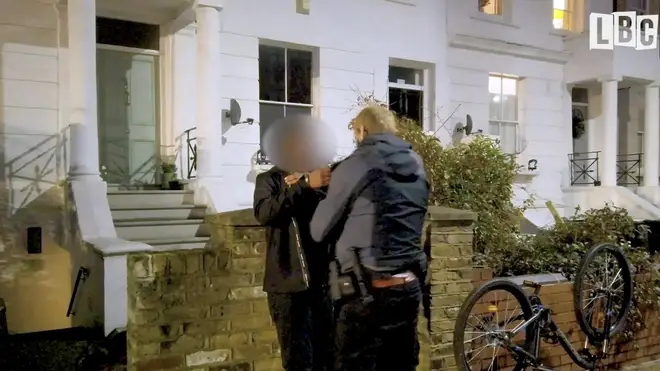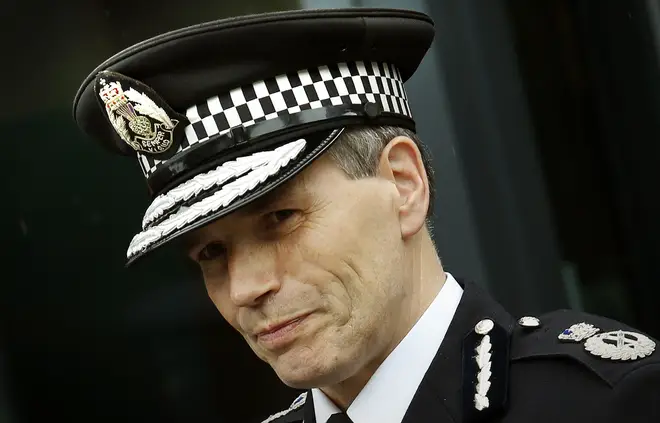
Ben Kentish 10pm - 1am
2 February 2021, 08:15 | Updated: 2 February 2021, 08:48

LBC on patrol with Met's 'violence suppression unit'
Metropolitan Police Deputy Commissioner Sir Stephen House has said the force's "disproportionate" use of stop and search powers will continue as he fought back over claims of discrimination.
He told the Evening Standard that over 300 knives a month were being taken off London streets as a result of the policy, and the ethnic imbalance was inevitable because “young black men are dying on the streets of London and are being stabbed on the streets of London and, candidly, are also stabbing on the streets of London.”
Sir Stephen added that it was "nonsense" to think the majority of ethnic minorities felt they felt mistreated.
He added that research currently suggests two thirds of black and Asian Londoners, felt they were treated politely and with respect when they were stopped.
Met Commissioner Dame Cressida Dick recently apologised and launched a review into the use of handcuffs pre-arrest after the vehicle stop of Team GB athlete Bianca Williams and her Portuguese sprinter boyfriend Ricardo Dos Santos in west London last July.
But she has repeatedly defended the use of stop and search powers to take hundreds of weapons a month off London's streets.

Stop and search: "Crime does not fall evenly in communities"


Speaking on LBC last month, she recognised "concerns" over the tactic, but said: "It's a very important tool, it's a power that we have used more, not less - over 300,000 stops and searches last year - and it has been part of why, year on year, we have seen reductions in young men being stabbed and a variety of other violent crime types on our streets."
But Sir Stephen said these incidents gave a distorted view of stop and search and how it is used.
He added: “Every young person killed is a tragedy and we focus very strongly on youth gangs to try to prevent homicides. We constantly get thrown at us ‘your stop and search is disproportionate’ — of course our stop and search is disproportionate because we stop and search in areas of high crime and high violence."
The Met - which is the biggest police force in the UK - has disciplined just six officers over the misuse of stop and search powers since 2014 - despite receiving almost 5,000 complaints, figures reveal.
Some 4,917 allegations have been made about the Metropolitan Police's use of the tactic in the last seven years, according to data obtained under Freedom of Information laws.

Met Police apologises to Bianca Williams for 'distressing' search
The number of complaints more than doubled from 786 in 2019 to 1,744 last year, with the number of searches carried out rising from 268,771 to 319,713 in the same period.
Not a single complaint among 990 cases in 2020 was found proven when investigated by the Met's Directorate of Professional Standards.
A total of 17 officers have faced disciplinary proceedings for stop and search since 2014, the figures show.
The figures come after the Independent Office for Police Conduct (IOPC) watchdog last year made 11 recommendations for the Met to improve its use of stop and search powers.
A review of cases found the "legitimacy of stop and searches was being undermined" by a number of issues, including a lack of understanding about the impact of disproportionality and poor communication.
In one investigation, a black man in possession of someone else's credit card was suspected of having stolen it even after providing a credible explanation.
In another case, officers used stop and search powers after brothers Liam and Dijon Joseph, who are black, fist-bumped, believing them to be exchanging drugs.
New legislation was introduced in February in a bid to overhaul the police discipline system.
Figures show black people are almost four times more likely to be stopped and searched in the street than white people in London and the Met has faced controversy and accusations of alleged racial profiling following a series of high-profile incidents filmed and shared online.